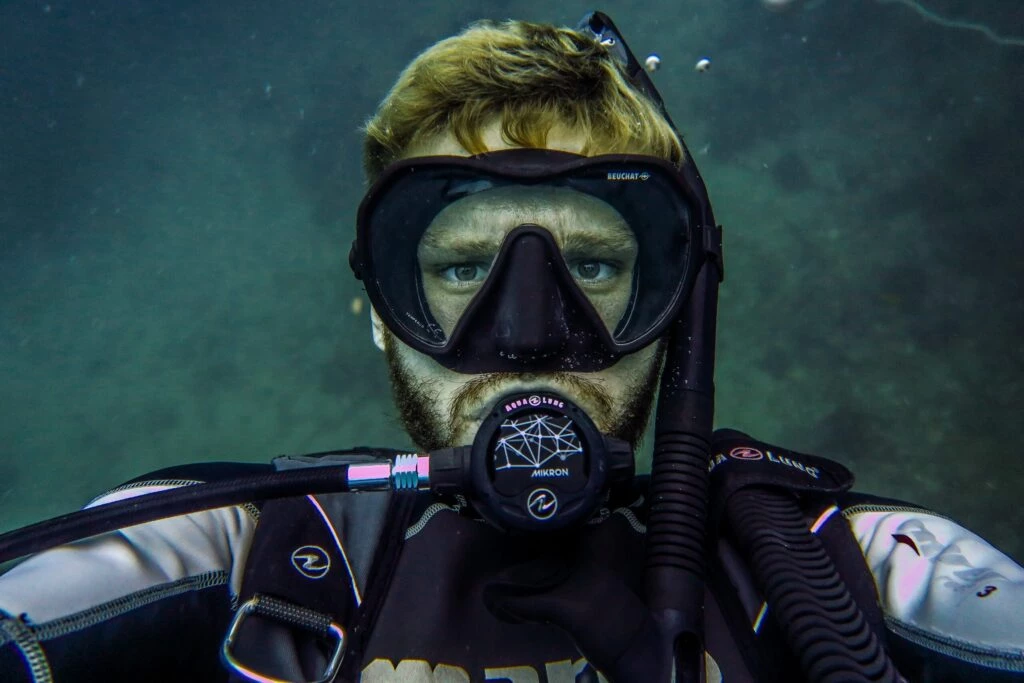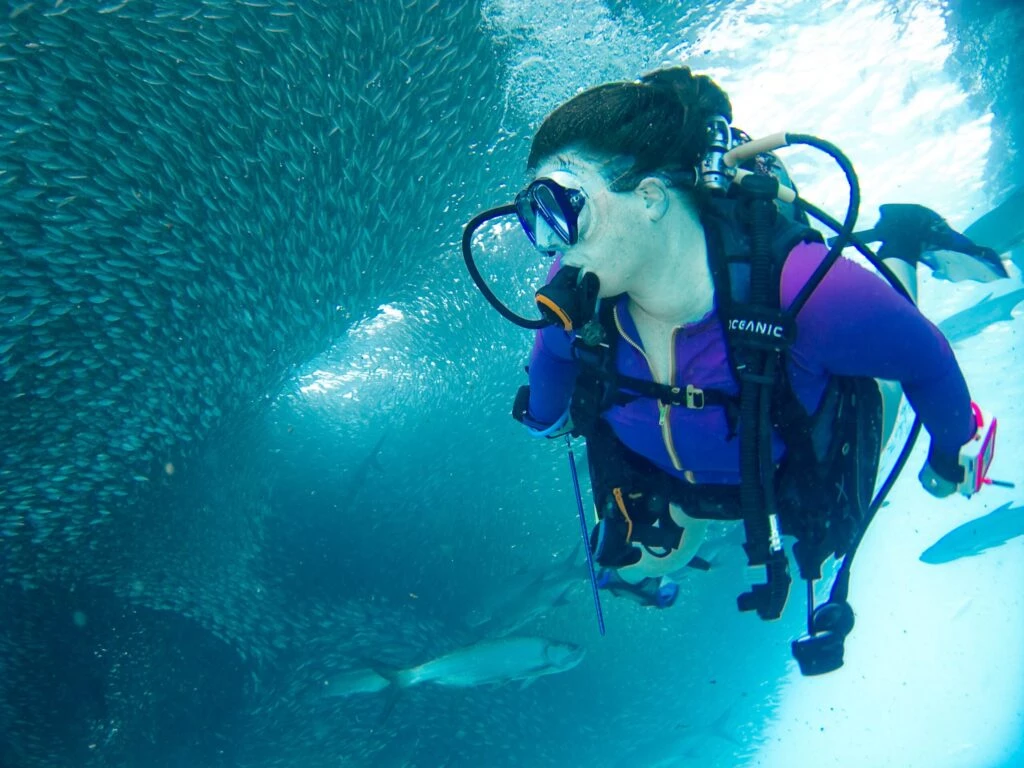Scuba diving in Cape Town is an exhilarating experience for divers of all levels. With its crystal clear waters, diverse marine life, and unique topography, Cape Town offers some of the best diving opportunities in the world. Let us explore the various aspects of scuba diving in Cape Town, from the best dive sites to the essential equipment needed for diving.
Table of Contents
Why Cape Town is an Amazing Place for Scuba Diving

Cape Town is situated at the tip of Africa, where the Atlantic and Indian Oceans meet, making it a unique and biodiverse location for marine life. The water temperature ranges from 10°C to 20°C throughout the year, making it a perfect location for divers to experience a range of diving conditions. Additionally, the visibility can range from 5 to 30 meters depending on the time of year and location, providing an ideal opportunity for divers to explore the underwater world.
Diving Seasons in Cape Town
The diving season in Cape Town runs from October to May, with the best diving conditions occurring between November and March. During this period, the water temperature is warmer, and the visibility is better. However, the winter months from June to September can offer great diving experiences, with the chance to see some of the rarer species that are not as frequently seen during the warmer months.
Dive Sites in Cape Town


Cape Town offers a range of dive sites suitable for both beginner and experienced divers. Here are some of the best dive sites in Cape Town:
- False Bay – False Bay is one of the most popular diving areas in Cape Town, offering a diverse range of dive sites that cater to all levels of divers. The bay is home to a vast array of marine life, including seals, rays, and various species of fish.
- Cape Point – Cape Point is a must-visit dive site for advanced divers, with the opportunity to experience strong currents and deep dives. The area is home to some of the most magnificent kelp forests, providing a unique and beautiful underwater landscape.
- Table Bay – Table Bay offers a range of dive sites that cater to all levels of divers, from shallow reef dives to deep wrecks. The area is home to a range of marine life, including crayfish, octopus, and various species of fish.
Equipment Needed for Scuba Diving


When scuba diving in Cape Town, it is essential to have the proper equipment to ensure a safe and enjoyable experience. Here are some of the essential equipment items needed for scuba diving:
- Wetsuit – A wetsuit is essential when scuba diving in Cape Town due to the cold water temperatures. It is recommended to wear a 5mm to 7mm wetsuit to stay warm during the dive.
- Regulator – A regulator is a crucial piece of equipment that allows divers to breathe underwater. It regulates the flow of air from the tank, ensuring a consistent supply of air throughout the dive.
- Buoyancy Control Device (BCD) – A BCD is used to control buoyancy underwater, allowing divers to maintain neutral buoyancy and move freely underwater. It also provides a way to carry essential items such as a tank and weights.
- Dive Computer – A dive computer is a device that tracks a diver’s depth, time, and nitrogen levels. It is a crucial safety device that helps divers avoid decompression sickness and ensures a safe ascent.
- Mask and Fins – A mask and fins are essential for underwater vision and movement. The mask allows divers to see underwater while the fins provide propulsion to move through the water.
- Tank and Weights – A tank provides the air supply for the dive, while weights are used to adjust buoyancy and help divers sink to the desired depth.
Safety Considerations for Scuba Diving in Cape Town

Scuba diving is a safe activity when done correctly and with the proper training and equipment. However, there are some safety considerations to keep in mind when diving in Cape Town:
- Weather Conditions – The weather conditions in Cape Town can change quickly, and it is essential to check the forecast before diving. Diving in rough weather can be dangerous and should be avoided.
- Marine Life – Cape Town is home to a range of marine life, including sharks and rays. While encounters with these animals are rare, it is essential to follow proper diving etiquette and avoid touching or harassing marine life.
- Dive Planning and Buddy System – Proper dive planning and the buddy system are crucial for safe diving. Always plan the dive and stick to the plan, and always dive with a buddy who can assist in case of an emergency.
Scuba Shack in Capri
Scuba Shack in Capri is a popular scuba diving company that offers a range of diving experiences in Cape Town. They cater to all levels of divers, from beginner to advanced, and offer a range of courses to help improve divers’ skills and knowledge.
Scuba Shack in Capri offers guided dives to some of the most popular dive sites in Cape Town, including False Bay and Table Bay. They also offer courses such as the Open Water Diver course, the Advanced Open Water Diver course, and the Rescue Diver course.
Website: https://scubashack.co.za/
Phone: 072 603 8630
Email: nick@scubashack.co.za
Scuba diving in Cape Town is an incredible experience that offers divers the opportunity to explore the unique and diverse underwater world. With a range of dive sites, suitable for all levels of divers, and experienced scuba diving companies like Scuba Shack in Capri, Cape Town is the perfect destination for scuba diving enthusiasts. With the proper equipment, training, and safety considerations, scuba diving in Cape Town is a safe and unforgettable experience.






